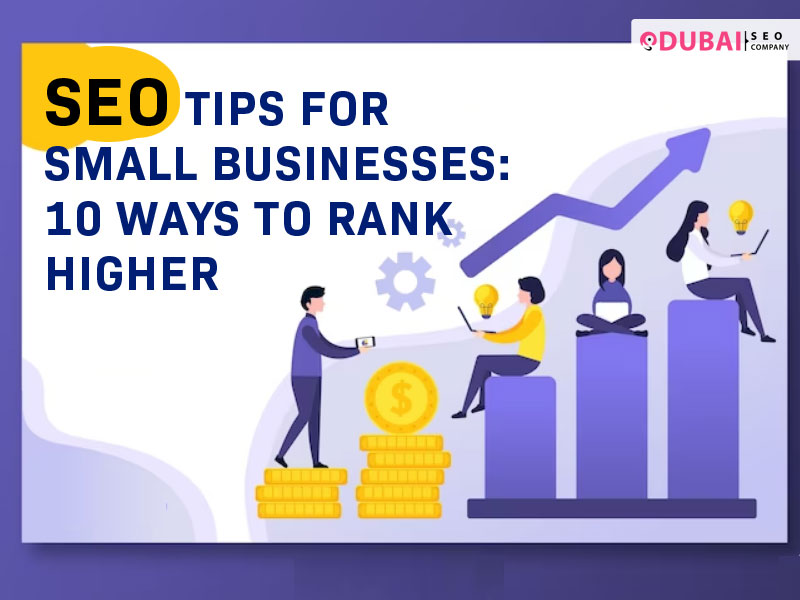Discover 10 effective SEO tips designed for small businesses to boost their search engine rankings. Learn how to leverage digital marketing techniques to attract more potential customers. Small businesses need every edge they can get to stand out from the competition and draw in potential consumers in today’s extremely competitive digital world. Search engine optimization (SEO) and digital marketing together can help with that. By employing efficient SEO methods, small businesses may increase their online presence and position themselves higher in search engine results.
This post will look at ten practical SEO tips designed especially for small businesses.
-
Perform a Keyword Search:
The foundation of any effective SEO campaign is keywords. Start by deciding what search terms your target audience is most likely to use. You can use tools to help you locate the most relevant keywords for your company. Focus on long-tail keywords that are more specialised for your goods or services and have a moderate search volume.
-
Improve the On-Page Elements of Your Website:
Always remember to use relevant keywords in your title tags, meta descriptions, headings, and URL structures. Make use of compelling wording that is both descriptive and inviting to persuade searchers to visit your website. Add alt tags to your website’s photos containing keywords connected to your company to optimize them further.
-
Produce Top-Notch Content:
In SEO, content is the most important thing. For both user experience and search engine rankings, producing high-quality, educational, and interesting content is crucial. Create blog entries, articles, and other material types that your target audience will find useful.
Keep keyword stuffing to a minimum by incorporating pertinent keywords naturally into the content. To position your company as an industry authority, attempt to give solutions, respond to inquiries, and share insightful information.
-
Make Your Site Mobile-Friendly:
With rising consumers accessing the internet via mobile devices, having a mobile-friendly website is no longer an option – it’s a requirement. Make sure that your website responds to diverse screen widths and does so seamlessly.
Improve the speed at which your website loads, as this can harm both user experience and search engine rankings. You may assess the mobile-friendliness of your website using Google’s Mobile-Friendly Test tool.
-
Boost Website Loading Times:
The success of SEO depends heavily on the speed of the website. A slow-loading website can annoy visitors and increase bounce rates, harming your search engine rankings. Compressing your photos without sacrificing quality will help your website load faster.
Use scripts and plugins that can slow down your website as little as possible. Think about implementing a content delivery network (CDN) to distribute your website’s content over numerous servers worldwide for quicker loading speeds.
-
Build Trustworthy Backlinks:
Backlinks from trustworthy and credible websites significantly affect SEO rankings. Put your efforts into constructing backlinks of outstanding quality that benefit your users. Make contact with bloggers, influential people in the sector, and appropriate websites to ask for backlinks or guest posting possibilities.
Although it takes time and work, developing a good backlink profile can considerably raise your website’s search engine ranks.
-
Make Your Google My Business Listing More Effective:
Your Google My Business (GMB) listing needs to be optimised if your small business wants to attract local clients. Ensure all online directories include correct and consistent business information, including name, address, phone number, and website URL. As reviews can help your local search rankings, ask pleased customers to post kind comments on your GMB listing.
-
Utilize Social Media:
In addition to being great tools for connecting with your audience, social media sites may also help you with SEO. Develop and disseminate appealing material for social media sites, including Facebook, Twitter, LinkedIn, and Instagram.
Encourage social sharing to boost your content’s visibility and draw possible backlinks. Your search engine rankings might be indirectly influenced by social signals such as likes, shares, and comments on your content.
-
Track and Evaluate Your SEO Activities:
Determine where your SEO efforts need to be improved by regularly tracking and evaluating their effectiveness. Track your website’s traffic and user activity using tools like Google Analytics and Google Search Console. Read sscoglobal.co.uk
To improve your SEO strategies, evaluate the effectiveness of your keywords and the click-through and conversion rates. You’ll be able to make more competent judgements and optimise your SEO efforts with this data-driven approach.
-
Stay Current on SEO Trends:
To stay up to date on the most recent tactics, read reliable SEO blogs, go to industry conferences, and participate in online forums.
Keeping up with the most recent SEO trends and best practices is essential to stay one step ahead of the competition. Working together with a trustworthy digital marketing or best SEO company may also give you professional advice and guarantee you stay on top of the SEO game.
Putting these ten SEO tips into practice can dramatically enhance your small business’s online exposure and search engine rankings. Remember that SEO is a lengthy process requiring continual effort and trend adaptability. To maintain a competitive edge in the digital sphere, be proactive, track your SEO efforts, and keep learning about the newest SEO techniques.

